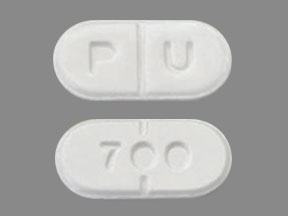Cabergoline Disease Interactions
There are 3 disease interactions with cabergoline.
Cabergoline (applies to cabergoline) cardiac valvular disorders
Major Potential Hazard, Moderate plausibility. Applicable conditions: Valvular Heart Disease
Postmarketing cases of cardiac valvulopathy have been reported in patients receiving cabergoline. This drug is contraindicated in patients with history of cardiac valvular disorder. All patients should undergo a cardiovascular evaluation including echocardiogram to assess the potential of valvular disease, and if detected, the patient should not be treated with cabergoline..
Cabergoline (applies to cabergoline) hypertension
Major Potential Hazard, High plausibility.
The use of cabergoline is contraindicated in patients with uncontrolled hypertension. Cabergoline is a dopamine agonist and effects on alpha and/or beta-adrenergic receptors may alter cardiovascular function.
Cabergoline (applies to cabergoline) hepatic dysfunction
Moderate Potential Hazard, High plausibility. Applicable conditions: Liver Disease
Cabergoline is extensively metabolized by the liver primarily by hydrolysis. Therapy with cabergoline should be administered cautiously in patients with hepatic dysfunction. Careful monitoring should be exercised.
Switch to professional interaction data
Cabergoline drug interactions
There are 157 drug interactions with cabergoline.
Cabergoline alcohol/food interactions
There are 2 alcohol/food interactions with cabergoline.
More about cabergoline
- cabergoline consumer information
- Check interactions
- Compare alternatives
- Pricing & coupons
- Reviews (119)
- Drug images
- Side effects
- Dosage information
- During pregnancy
- Drug class: prolactin inhibitors
- Breastfeeding
- En español
Related treatment guides
Drug Interaction Classification
| Highly clinically significant. Avoid combinations; the risk of the interaction outweighs the benefit. | |
| Moderately clinically significant. Usually avoid combinations; use it only under special circumstances. | |
| Minimally clinically significant. Minimize risk; assess risk and consider an alternative drug, take steps to circumvent the interaction risk and/or institute a monitoring plan. | |
| No interaction information available. |
See also:
Further information
Always consult your healthcare provider to ensure the information displayed on this page applies to your personal circumstances.


